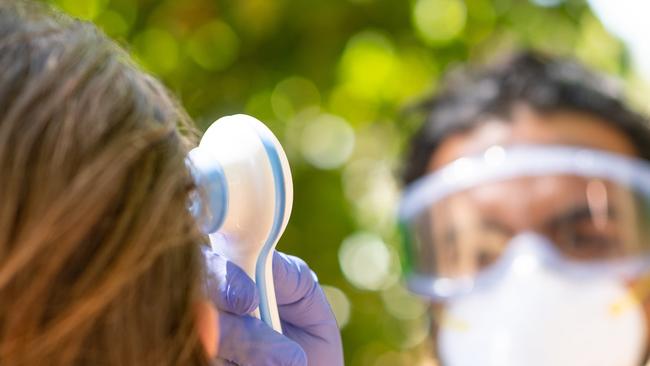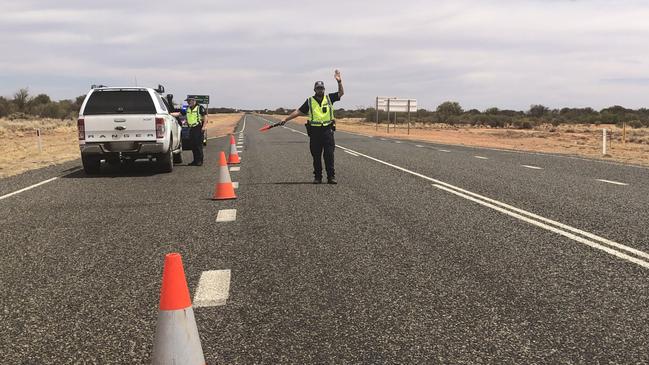5200 travellers enter NT, almost 150 people in quarantine after coming from hot spots
ALMOST 5200 travellers have crossed into the Territory since its borders reopened on Friday and almost 150 people are in enforced quarantine at Howard Springs or in Alice Springs

News
Don't miss out on the headlines from News. Followed categories will be added to My News.
ALMOST 5200 travellers have crossed into the Territory since its borders reopened on Friday and almost 150 people are in government quarantine at the Howard Springs quarantine facility or in Alice Springs.
NT Police reported 1025 people entered the Territory in the 24 hours to Monday 5am.
Of those, 113 were put into mandatory supervised quarantine, including 110 who arrived by air.
A total 143 people are in mandatory supervised quarantine, with 115 in Howad Springs and the remainder in Alice Springs. There are also 1000 people who arrived in the Territory before July 17 from declared hotspots still in self-quarantine at home.
MORE NT NEWS
NT’s interim coronavirus recovery plan to be unveiled today
Burning questions remain over Peter Falconio’s murder
Supreme Court dismisses Caroline Reynolds’ Lake Bennett appeal
And 5190 people have crossed into the Territory in that time, the vast majority of which have come in by road, with only about 515 coming in through the NT’s airports.
And the majority of road travellers — about 2200 of them — have come through the South Australia-Northern Territory border crossing near Kulgera, south of Alice Springs.

Speaking on ABC Radio this morning, Chief Minister Michael Gunner said the onus was on the traveller to prove they had not been in a coronavirus hotspot in the 14 days prior to coming to the Territory.
“You need to prove that you weren’t in a hotspot, before you sign that statutory declaration you may have already signed it before you get there but you have to actually still prove at that border point that you did not come from a hotspot,” he said.
“Something like a credit card receipt will be acceptable because it’ll show where your purchases were made over the last 14 days.”
He said testing was not done on every person who crossed the border but rather testing was done at random.
LIMITED TIME > Discount subscription: Read everything for $1
“We’re doing what they call sentinel testing, so randomly testing people who enter the Territory,” he said.
“That is mainly about seeing if there’s a coronavirus outbreak or coronavirus present somewhere that nobody knows about in the country.”


